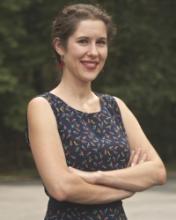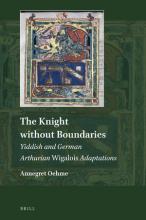After more than a year of online teaching, we are now back on campus. This quarter, I get to explore representations of diversity in the Middle Ages (with special focus on race, religion, gender, disabilities) in person with undergraduate students from the German Studies / Honors class “Diversity in the Middle Ages,” and some highlights of medieval German literature with our graduate students as well. While I certainly learned A LOT about how to teach online effectively over the course of the past year, I have missed the energy of the classroom, the atmosphere on campus, and my colleagues. It’s certainly a very strange experience – teaching with a mask, keeping distance, eating and drinking behind closed doors – but I am happy being back on our beautiful campus and in Denny Hall! The beautiful Seattle autumn days have lessened the strangeness of being surrounded by many people (all masked).
The academic year also began with excitement for me regarding my own research. Any day now my second book Knight without Boundaries. Yiddish and German Arthurian Wigalois Adaptations goes into print. This concludes, to some extent, my extensive research on the Jewish-Christian, Yiddish-German story tradition of Wigalois, knight of King Arthur’s Round Table. My new projects take me into the direction of premodern race studies, and Yiddish and German medieval heroic epics. And further, I was able to find a publisher for my co-edited volume Jewish Medieval Romance (with Dr. Caroline Gruenbaum). The contributions to this volume explore a variety of texts that can be considered medieval romance or containing romance elements - written by Jews for a Jewish audience in mind. We hope that our volume helps to rethink the genre and open the discussion about “What is a medieval romance?” to include the often-overlooked contribution of the Jewish minority, a community that was highly engaged in the production of medieval non-religious texts.


